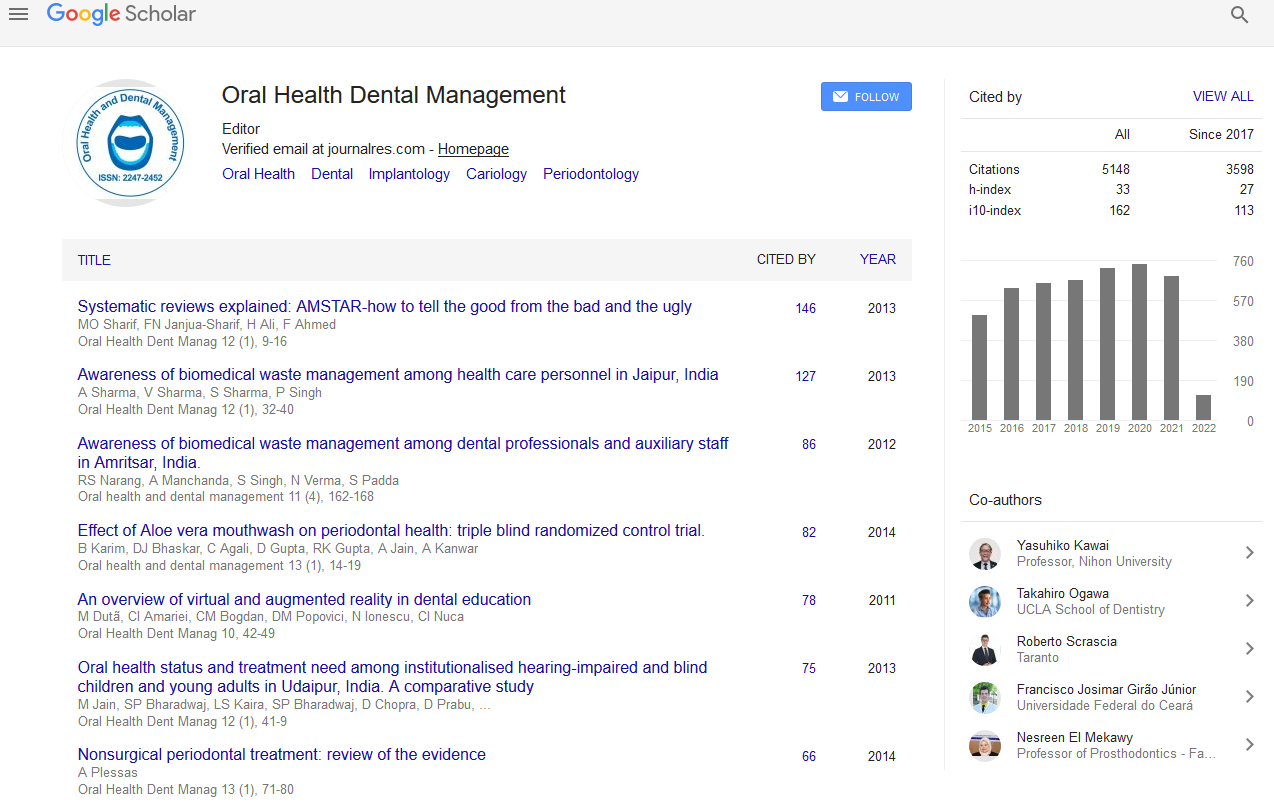Indexed In
- The Global Impact Factor (GIF)
- CiteFactor
- Electronic Journals Library
- RefSeek
- Hamdard University
- EBSCO A-Z
- Virtual Library of Biology (vifabio)
- International committee of medical journals editors (ICMJE)
- Google Scholar
Useful Links
Share This Page
Journal Flyer

Open Access Journals
- Agri and Aquaculture
- Biochemistry
- Bioinformatics & Systems Biology
- Business & Management
- Chemistry
- Clinical Sciences
- Engineering
- Food & Nutrition
- General Science
- Genetics & Molecular Biology
- Immunology & Microbiology
- Medical Sciences
- Neuroscience & Psychology
- Nursing & Health Care
- Pharmaceutical Sciences
The effect of collar designs and developments over the years on soft tissue and bone level
10th Dentists and Prosthodontics Annual Meeting
June 27-28, 2016 New Orleans Louisiana, USA
Klenise Paranhos, Mashal Airajhi, Anna Stauroailos and Zainato Azzeb
New York University, USA
Scientific Tracks Abstracts: Oral Health Dent Manag
Abstract:
The integration between implants hard and soft tissues is extremely important and responsible for the success of dental implants. Soft tissues disrupter with consequentially crestal bone loss along the dental implant surface disturbs the prognosis and the success rate of the implant. It is well known to occur when the implant surfaces were exposed and contaminated by the biofilm, generating the marginal tissue inflammation. Different configurations were proposed with the goal of reducing the amount of early MBL (marginal bone level) around the implants, suggesting more stable bone�?? implant interface. According to the literature, the polished area sub-crestally facilitates higher rates of early MBL, whereas a rough implant surface placed at the bone level reduces the amount bone loss. However, in long term, this crestal bone can be disturbed when the collar get exposed to oral cavity by any degree of inflammation. All these designs introduced to the implant collar may lead to a decreased amount of initial bone loss at the crestal level to prevent the break of the biological seal and consequentially loss of the implant. The question remains as to whether the surface structure on the collar of the implant exposed can be a genuine reason on the majority of implants failures rate. The objective of this presentation is to review a collar design that is available today that can create better biological seal and consequentially preserve the soft tissue health.
Biography :
Klenise Paranhos is currently working as a faculty in New York University College of Dentistry, Comprehensive Care Postgraduate International Program, Cariology and Comprehensive Care, New York City, United States.
Email: kp21@nyu.edu

